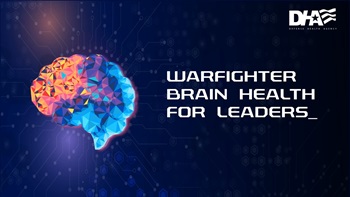The video expands and enhances the information in the fact sheet. In addition to leader-specific information, the video includes an introduction to TBI basics such as the mechanics of brain injury, the overlapping signs and symptoms of TBI and PTSD, and how each may affect functional and operational performance. Military leadership will benefit from the review of general diagnostic best practices and the explanations of TBI clinical support tools.
